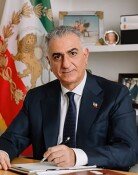AFoCO earns observer status in UN General Assembly
AFoCO earns observer status in UN General Assembly
Posted December. 22, 2020 07:33,
Updated December. 22, 2020 07:33
The Asian Forest Cooperation Organization (AFoCO), launched under the leadership of the Korea Forest Service, has secured the observer status of the United Nations General Assembly on Wednesday. AFoCO is the second international organization for South Korea to achieve the feat since the Global Green Growth Institute.
The inception of AFoCO was first proposed by the Korean government during the Korea-ASEAN special summit meeting, which was held on Jeju Island in 2009 to respond to international forest issues and strengthen cooperation among different countries. After membership acceptance and preparations were finalized, AFoCO was officially established in 2018 and its executive office is currently based at the Korean Forestry Promotion Institute in Yeouido, Seoul. Boasting 13 member states including Vietnam, East Timor, Bhutan, Cambodia, Brunei, the Philippines, Laos, Thailand, Indonesia, Kazakhstan, and Mongolia, AFoCO also has two observer states - Singapore and Malaysia.
Deforestation is responsible for 12% of global carbon emissions, with wildfires taking up a 25% share for the degradation. “While COVID-19 is spreading globally, the virus is a minor symptom compared to the three slow killers of mankind – climate change, depletion of natural resources and social disparity,” said UCLA geography professor Jared Diamond, the author of the Pulitzer Prize-winning “Guns, Germs, and Steel,” “The Third Chimpanzee,” and “The Evolution of Human Sexuality.” This reflects the concern that many countries have about climate change.
Securing the sources of carbon absorption through expansion of forests is one of the most cost-effective and most swift ways to cope with climate change. Pundits say AFoCO’s securing the observer status is a testimony to the importance of forests amid the growing environmental threats across the globe.
AFoCO appears to be a solid alternative that will stress the role of forests in tackling the threats facing humanity such as COVID-19 and climate change while playing a more proactive role in engaging Seoul and other Asian countries to work together.
As newly appointed observer, AFoCO is expected to lay foundation to cooperate with other international agendas such as UN’s three major environmental treaties (climate change, biodiversity, prevention of desertification), the United Nations Forum on Forests (UNFF), and the United Nations High-level Political Forum on Sustainable Development.
In addition, AFoCO will join the concerted effort of international community to cope with the issues of climate change and environmental degradation in conjunction with the UN Decade Ecosystem Restoration 2021-2030, which is due to kick off next year. The organization is planning to diversify its fund sources by expanding the scope of membership and strengthen its influence in international cooperation to tackle climate change.
Ki-Jin Lee doyoce@donga.com






![유학생들은 어쩌다 ‘먹튀’, 불법체류자가 되었나[이미지의 포에버 육아]](https://dimg.donga.com/c/138/175/90/1/wps/NEWS/IMAGE/2026/01/18/133179004.1.jpg)
